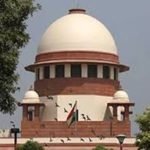This judgment concerns a Criminal Appeal (No. 2749 of 2025) filed by Kushal Kumar Agarwal (Appellant) against the Directorate of Enforcement (Respondent)1. A complaint was lodged under Section 44(1)(b) of the Prevention of Money Laundering Act, 2002 (PMLA) on 2nd August 2024, accusing the appellant. The core issue is that the Special Judge had taken cognizance of the offence without first providing an opportunity to be heard to the appellant. This procedural aspect, governed by the newly enacted Bharatiya Nagarik Suraksha Sanhita, 2023 (BNSS), became central to the appeal.
Law Involved The primary legal provisions interpreted are:
- Section 44(1)(b) of the Prevention of Money Laundering Act, 2002 (PMLA), under which the complaint was filed.
- Section 223 of the Bharatiya Nagarik Suraksha Sanhita, 2023 (BNSS), which came into force on 1st July 20241. This section deals with the examination of a complaint by a Magistrate taking cognizance of an offence.
- Specifically, the proviso to Sub-section (1) of Section 223 of the BNSS states that “no cognizance of an offence shall be taken by the Magistrate without giving the accused an opportunity of being heard”.
- Section 223 of the BNSS corresponds to Section 200 of the Code of Criminal Procedure, 1973 (CrPC), although the BNSS introduces a new proviso requiring the accused to be heard, which was not present in Section 200 of the CrPC.
- The Court noted its consistent view that a complaint filed by the Enforcement Directorate under Section 44(1)(b) of the PMLA will be governed by Sections 200 to 204 of the CrPC, now corresponding to BNSS provisions.
Reasoning:
The Supreme Court found that the Special Judge had admittedly not given an opportunity of being heard to the appellant before taking cognizance of the offence on the complaint. This was a direct violation of the proviso to Sub-section (1) of Section 223 of the BNSS.
The Court clarified that the purpose of this proviso is to “put an embargo on the power of the Court to take cognizance” without affording the accused an opportunity to be heard. It distinguished between giving an opportunity at the cognizance stage versus at a later stage, emphasising that the opportunity must be provided before cognizance is taken. The learned Additional Solicitor General’s submission that the question of hearing would not arise at the appeal stage was expressly kept open, but the core issue of the pre-cognizance hearing was deemed crucial.
Holding The Supreme Court partly allowed the Criminal Appeal. The impugned order dated 20th November 2024, which had taken cognizance, was set aside solely on the ground of non-compliance with the proviso to Sub-section (1) of Section 223 of the BNSS. The Court explicitly stated that it expressed no opinion on the merits of the complaint or the contentions raised by the Additional Solicitor General4. The appellant is directed to appear before the Special Court on 14th July 2025, so that he can be given an opportunity of being heard in terms of the proviso to Sub-section (1) of Section 223 of the BNSS. No further notice is required to be issued by the Special Court to the appellant.
Kushal Kumar Agarwal V. Directorate Of Enforcement
Supreme Court: 2025 INSC 760: (DoJ 09-05-2025)






